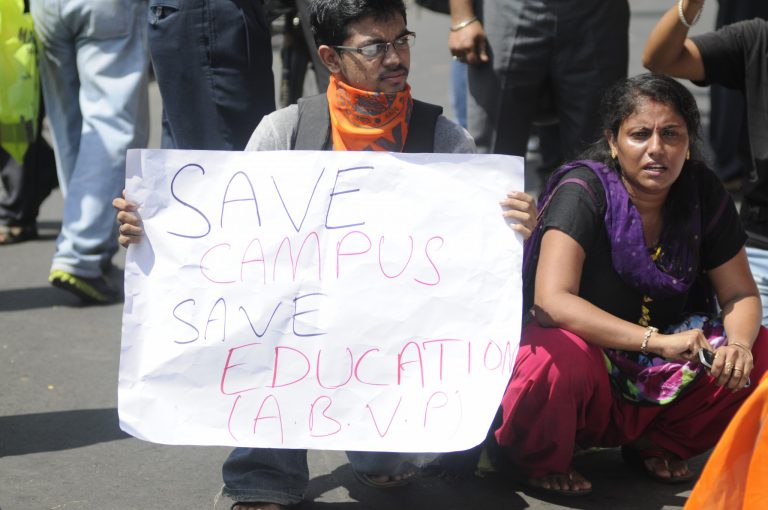
India’s Minister of Finance, Arun Jaitley, unveiled the nation’s plans to boost 20 universities to world-class teaching and research status in his new budget, announced on Monday.
Along with the strategic plan to promote the region’s higher education institutions, the Minister also discussed a new funding agency to support the sector and leverage public and private funding for university infrastructure.
In his speech, Jaitley stated that it “is our commitment to empower higher educational institutions to help them become world-class teaching and research institutions. An enabling regulatory architecture would be provided for 10 public and 10 private institutions,” he said, before adding that a more detailed plan is yet to be constructed.
#Budget2016 Presents Contrasting Offers to Education in India – https://t.co/FFLJxGLuoC
— mayur (@MayurKawale) 2 March 2016
While a previous attempt to establish autonomous Indian universities under the Universities for Research and Innovation Bill failed to make it through parliament in 2012, sector officials claim the new world-class universities could be regulated by a new law, or otherwise by the existing regulatory body, the University Grants Commission (UGC), in the case of national universities that are funded by the state.
Dheeraj Sanghi, professor of computer science at New Delhi’s Indraprastha Institute of Information Technology, and former Dean of the Indian Institute of Technology in Kanpur, supports the proposal, claiming the investment into regulatory architecture would be hugely beneficial to the nation’s higher education sector since the current architecture “does not support or empower” India’s universities.
“Rather [it] hinders the higher educational institutions from becoming high quality,” he said. “The institutions in India that provide high-quality education do so not because of regulations, but in spite of them.”
Funding agency shd give soft loans 2 students fr higher education in India. MBA’s 20L! Banks too picky @arunjaitley https://t.co/xwEjEY6Bnm
— Bhamini Ravishankar (@Bhamini_11) 1 March 2016
He also emphasised that UGC and the All India Council for Technical Education, the managing body of India’s engineering and management institutions, only actually establish minimum standards, which he claims “end up becoming maximum standards for many educational institutions to achieve”.
Sanghi believes that significant investment in India’s education infrastructure will allow the country to thrive on the competitive global stage.
The Human Resource Development Ministry, a government-run department that oversees higher education in India, has already started to form a higher education ranking system specific only to India, with the league table set to be published later in the year. The new ranking will allow sector professionals to identify the institutions that qualify for funding under the new proposal.
Liberalize University education in India to rid it of the Left’s choke hold. @RMantri at his combative best. https://t.co/FoPXmN8mIV
— Vishal Gupta (@nicemarwariboy) 22 February 2016
Jawaharlal Nehru University, New Delhi, a high-performing postgraduate university and one of the region’s most prestigious universities overall, is one institution expected to benefit from the new government funding.
Jaitley’s budget also revealed an increase of 4.8 percent to put towards education in India, but many have criticised that the rise represents no real increase on figures from the previous year.
However, higher education has been allocated a significantly larger portion when compared to previous budgets. Of the INR7.23 trillion (US$106 billion) education budget, some INR2.84 trillion (or US$41 billion) was allocated to higher education, up from INR2.68 trillion last year.
Additional reporting by University World News.
Image via Shutterstock.
Liked this? Then you’ll love these…
PM Modi’s push for prestige among India’s HE sector
Destination India? British Council seeks UK grads for internship programme in India







